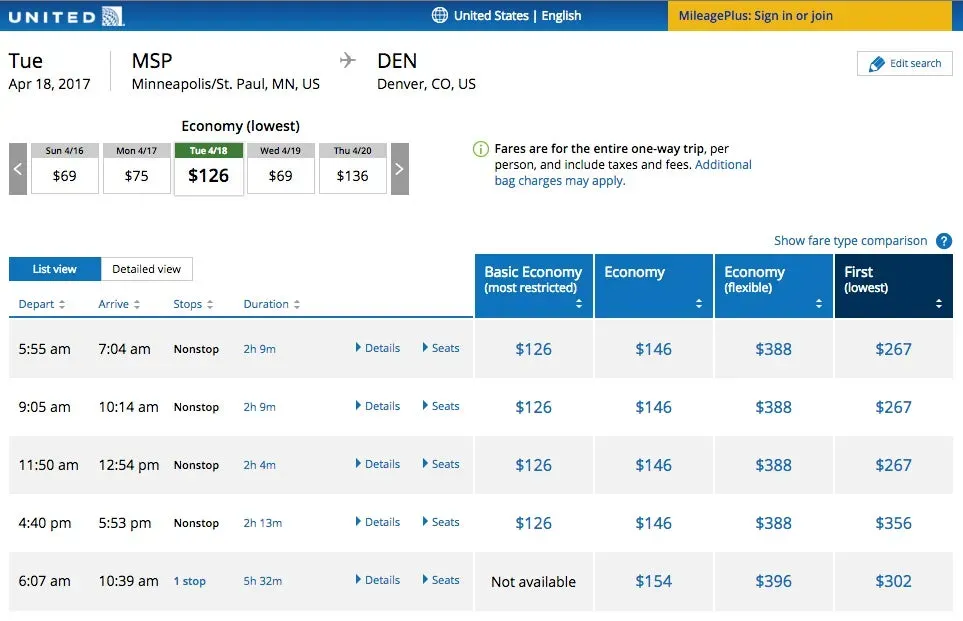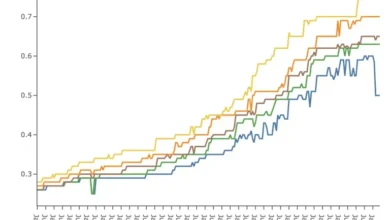Economy Fares Drop on Transatlantic Travel by Air France

In recent developments, major airlines have made significant changes to their economy fares, particularly for transatlantic travel. Amidst a challenging market environment, Air France is leading the way by slashing ticket prices to stimulate demand and fill seats. The airline’s chief executive, Ben Smith, highlighted the softening of economy-class fares compared to the stability of premium cabins, pointing to a shifting landscape in airline fare structure. With heightened competition among European airlines and the looming impact of broader economic factors, these economy fare cuts represent a strategic move in the travel industry to attract a wider range of passengers. As the industry navigates these turbulent times, understanding the dynamics of economy fares is essential for travelers looking to make the most of their journeys across the Atlantic.
The recent reduction in budget-friendly tickets on transatlantic flights signals a noteworthy shift in the air travel sector’s pricing strategies. Within the competitive landscape of international airlines, particularly those operating in Europe, there has been an increased focus on making air travel more accessible through lower airfare options. As economic pressures grow, airlines are reevaluating their fare structures to capture a broader customer base while struggling with fluctuating demand. This strategic emphasis on affordable pricing aligns with a trend in the travel industry to leverage cost-effective solutions as a response to market challenges. With travelers increasingly seeking value in their journeys, these adjustments to airline pricing models are pivotal in shaping the future of flying.
Air France’s Strategy to Cut Economy Fares
In response to a drop in demand for transatlantic travel, Air France has implemented significant cuts to its economy fares. This strategy is aimed at attracting more travelers and filling planes amidst a challenging economic environment. The decision reflects the airline’s efforts to adapt its pricing strategy in light of market dynamics, where traditional demand patterns have shifted. By slashing fares, Air France hopes to remain competitive against other European carriers that are also feeling the pressure from rising fuel costs and international tariffs.
The airline’s chief executive, Ben Smith, noted that the current softness in economy-class fares diverges sharply from the stability observed in premium cabin prices. This disparity highlights the ongoing challenges faced by airlines in the travel industry as they navigate the complexities of post-pandemic recovery. By prioritizing economy fares, Air France aims to secure a broader customer base while maintaining operational efficiency, especially during uncertain economic times.
Impact of Trade Tariffs on European Airlines
The recent imposition of tariffs on Airbus aircraft by the US government has sent shockwaves through the European airline sector. Following President Donald Trump’s announcement of a reciprocal tariff plan, shares of major European airlines, including Air France, have seen a notable decline. This turbulence in the stock market is a stark reminder of how dependent the airline industry is on stable international trade relations. As airlines like Air France prepare for potential retaliatory tariffs from the EU, they are not only adjusting their pricing models for economy fares but also re-evaluating their overall business strategies.
The trade war has raised concerns about the long-term sustainability of transatlantic travel, where airlines have traditionally relied on both business and leisure travelers. European airlines are now facing a dual challenge: combating the effects of tariffs while also responding to fluctuating consumer demand. In this context, Air France’s decision to cut economy fares can be seen as a tactical move to mitigate the impact of these external pressures and maintain customer loyalty in the crowded travel marketplace.
The Dynamics of Luxury vs Economy Travel
As Air France revamps its economy offerings, the airline is simultaneously making significant investments in enhancing its luxury services. The launch of new first-class suites is part of a broader strategy to attract high-value customers who might otherwise opt for private jets or other premium travel options. This reflects a wider trend in the airline industry where there is increasing competition among carriers to cater to affluent travelers seeking comfort and exclusivity in the air.
Yet, the paradox remains: while luxury travel is booming, the economy class is undergoing a transformation driven by demand fluctuations. Carriers are now faced with the task of balancing their service offerings across different classes. Air France’s dual approach of reducing economy fares while upgrading luxury services is indicative of a broader strategy to cater to diverse traveler needs, highlighting the industry’s commitment to evolving in line with consumer preferences.
Market Reactions to Air France’s Fare Changes
The announcement of economy fare cuts by Air France has elicited mixed reactions from market analysts and investors. On one hand, lowering prices can lead to increased passenger volume, which is crucial for maintaining profitability amid economic challenges. On the other hand, there are concerns that such aggressive pricing strategies could erode brand value or lead to further fare wars among European airlines. Market experts are closely monitoring Air France’s ability to balance cost reductions with service quality in the face of competitive pressures.
Additionally, the operational impact of reduced fares is significant. Airlines are often tasked with managing the operational costs associated with increased passenger loads, including staffing, fuel consumption, and onboard services. Therefore, while the economy fare cuts might temporarily boost sales, the long-term sustainability of such a strategy hinges on effective cost management and operational efficiency.
The Future of Transatlantic Travel Post-Pandemic
With the air travel industry still recovering from the impacts of the COVID-19 pandemic, the future of transatlantic travel remains uncertain. Airlines, including Air France, are navigating an evolving landscape where passenger preferences and travel regulations continue to shift. The return of demand for transatlantic flights is crucial for many European airlines, and strategies focused on economy fares may play a pivotal role in revitalizing travel across the Atlantic Ocean.
Given the long-standing popularity of transatlantic routes, airlines must carefully strategize their fare structures to attract both leisure and business travelers. The push to make affordable travel options available can help drive bookings, but the overall recovery trajectory will depend on broader economic conditions, vaccination rates, and the lifting of travel restrictions. It is a complex interplay of factors that will determine how the travel industry adapts moving forward.
Effects of the Economic Downturn on Airline Pricing
Economic downturns invariably affect consumer spending patterns, with travel often being one of the first areas to experience cuts. In response to economic uncertainties, Air France’s decision to slash economy fares reflects a strategic pivot aimed at sustaining demand and keeping aircraft occupied. This move is not just about competition but is also a preemptive strategy to secure revenue streams during a period of financial instability for many consumers.
With the potential for further economic contraction looming large, airlines that proactively adjust their pricing strategies are likely to fare better in maintaining market share. The focus on affordability through economy fares can help lure back travelers who might otherwise postpone trips. Industry analysts suggest that such pricing adjustments could stimulate demand in a sluggish travel market, proving crucial for long-term recovery.
The Role of Luxury Travel in Airline Revenue Strategies
Despite the challenges presented in the economy segment, luxury travel is becoming increasingly vital for airlines like Air France. As the airline industry recovers from the pandemic, the luxury travel market is witnessing a significant upswing. Detailed investments in first-class facilities reflect a trend towards capturing high-net-worth individuals who prioritize comfort and exclusive services, enhancing the airline’s revenue diversification efforts amidst fluctuating economy fares.
Air France’s push towards luxury not only serves to attract affluent travelers but also counterbalances the risk associated with relying solely on economy-class ticket sales. The stakes are high in appealing to this lucrative demographic, as the profit margins on premium tickets can far exceed those on economy fares, making luxury travel a key pillar in the airline’s overall financial strategy.
Adjusting Flight Capacity Amid Changing Demand
While Air France has yet to modify its flight capacity, the decision to maintain existing schedules reflects a strategic commitment to meet fluctuating demand. Should the softening economy force the airline to adjust its flight capacity in the future, this could lead to further fare adjustments across both economy and premium classes. The ability to respond swiftly to market demand will be crucial for Air France as it aims to stabilize revenue streams during precarious economic periods.
As airlines assess demand trends, careful management of flight schedules is essential in ensuring operational efficiency and maintaining passenger services. For Air France, adapting to market conditions while retaining flexibility will be key in navigating the evolving travel landscape, balancing the need for profitable operations with the importance of retaining customer loyalty.
The Competitive Landscape of the Airline Industry
In light of recent developments, the competitive landscape within the airline industry is becoming ever more complex. Air France finds itself in a battle not only with domestic rivals but also with leading European airlines like Lufthansa and British Airways. Each of these carriers is grappling with similar challenges, including rising operational costs and the need to sustain customer demand through both economy and premium offerings.
To remain competitive, airlines are increasingly forced to differentiate their services, whether through pricing strategies or the user experience offered on board. As Air France moves to adjust its economy fares, it must also be prepared to innovate in other service areas, reinforcing its brand in an environment where both cost and quality become decisive factors for travelers.
Frequently Asked Questions
What are economy fares on transatlantic travel and how are they impacted by market conditions?
Economy fares on transatlantic travel refer to the ticket prices for standard class seats on flights between North America and Europe. These fares have recently been cut by airlines like Air France due to a decrease in demand, indicating that the travel industry is responding to market conditions and potential economic downturns. This adjustment helps airlines maintain full flights despite weaker demand.
How have airline fare cuts affected European airlines like Air France?
Airline fare cuts, particularly in the economy class segment, have significantly impacted European airlines such as Air France. The reduction in economy fares aims to attract travelers amidst softening demand resulting from economic uncertainties. This strategy contrasts with the stability seen in premium class fares, indicating a targeted approach by these airlines to manage passenger volume on transatlantic routes.
What are the implications of tariff plans on economy fares for European airlines?
The recent tariff plans proposed by the U.S. government, including 20% tariffs on products like Airbus planes, could further complicate the already challenging economic landscape for European airlines. As these carriers adjust their economy fares to entice more passengers, they also face external pressures from trade policies that may affect operational costs and overall pricing strategies.
Why are transatlantic economy fares important in the travel industry?
Transatlantic economy fares are critical in the travel industry as they represent the price point at which a large volume of travelers—both leisure and business—decide to fly. With airlines like Air France reducing these fares to fill seats, they play a crucial role in maintaining profitability and market share, especially in a competitive landscape where air travel demand is fluctuating.
How does the recent softness in economy-class fares compare to premium cabin stability?
The recent softness in economy-class fares, as noted by Air France’s CEO Ben Smith, contrasts sharply with the relative stability observed in premium cabin fares. While economy tickets have seen price cuts to attract travelers, premium fares remain steady due to ongoing demand from affluent customers flying for business or luxury travel, highlighting the diverse pricing strategies within the airline industry.
What trends are emerging in luxury travel impacting economy fares?
Emerging trends in luxury travel are significantly impacting economy fares as airlines like Air France shift focus to attract high-end leisure travelers alongside business clients. With an increase in affluent passengers opting to fly for leisure, the dynamics of pricing in economy fares may adjust as airlines strive to capture this market segment without compromising their offerings in premium cabins.
| Aspect | Details |
|---|---|
| Airline | Air France |
| Fare Reduction | Cutting economy ticket prices on transatlantic flights |
| Market Condition | Weakening demand for economy fares |
| Response to Economic Trends | Concerns about broader economic downturn and its impact on travel demand |
| Airline Strategy | Price cuts are aimed at maintaining full planes amid softening demand |
| Impact of Tariffs | European airline group shares decline due to Trump’s tariffs on EU products |
| Competition | Investment in first-class services to attract luxury travellers while dealing with economy fare challenges |
Summary
Economy fares are experiencing significant shifts as airlines adapt to changing market conditions. The recent cuts by Air France highlight the competitive nature of the transatlantic air travel market in response to decreasing demand. With economic uncertainties and increasing tariffs affecting the industry, maintaining a balance between passenger capacity and profitability remains a crucial focus for airlines. As they navigate these challenges, economy fares are likely to continue playing a pivotal role in attracting passengers, especially in turbulent economic times.




